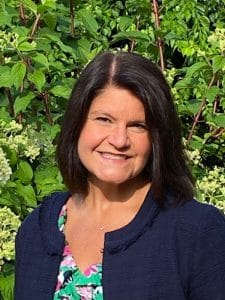Cartwheel receives $20 million for school mental health

Company provides quick access to telehealth care
It should be no surprise that the mental health of children and adolescents was hit hard by the pandemic. But for kids in Massachusetts, Rhode Island, Connecticut, New York, and Illinois, help could be on the way.
Cartwheel—a Massachusetts-based startup company that partners with school districts to provide virtual mental health care—secured $20 million in Series A funding from Menlo Ventures. (Series A funding typically comes from investors who want to be a part of a startup company that has already shown progress in building its business model).
Other companies such as Reach Capital, General Catalyst, Box Group, and Able Partners are also funding Cartwheel.
Cartwheel, Co-Founder and CEO Joe English and CO-Founder and COO Daniel Tartakovsky, a previous mental health policy advisor to the U.S. Surgeon General, described in a statement how their company helps school districts access mental healthcare quickly and easily.
“If a counselor thinks a student might need a level of care that goes beyond the school’s own capacity, Cartwheel can initiate treatment with a licensed clinician—no waitlists. This speed and quality have helped save lives,” said English.
Tartakovsky added, “We believe our model will become a blueprint for districts across the country on how to build a long-term school-community partnership, especially as school budgets tighten with the expiration of federal COVID relief dollars.”
Cartwheel provides telehealth services with no waitlist within 50 school districts and charter networks with whom it collaborates. Services include individual therapy, group therapy, parent guidance, and medication support.
The company allows students to see a licensed clinician at home or at school during evenings, weekends, school breaks, and summers. With the funding, they hope to expand existing health services and network in five other states.
Juliana Chen, M.D., Cartwheel’s chief medical officer and a clinical psychiatrist in private practice, said via email that access to timely care makes an enormous difference in how the students continue to progress through school.
“As with any age group or any health care condition, intervening as early as possible and providing care and services upon the onset of symptoms or concerns is critical for optimizing outcomes for pediatric mental health,” she said.
She said early intervention reduces the potential of conditions worsening and adverse outcomes occurring.
Living with untreated mental health symptoms leads to greater risk of worse outcomes, across mental health outcomes, physical health outcomes, academic outcomes, and other social or functional outcomes, according to Chen.
“Especially as children and adolescents have their lives ahead of them, we believe it is important for society to offer timely access to mental health services,” she said.
Elementary School Psychology Department Chair Heather Stouch, NCSP, LEP, said feedback to the Acton-Boxborough Regional School District’s contract with Cartwheel has been largely positive.
Stouch is coordinator of social emotional learning and mental and behavioral health in the district. Since the beginning of the last school year, referrals have increased to 300 students.
She said students find value in the services and are having positive outcomes because of their virtual consultations. Stouch said the services represent a big change.
“Prior to working with Cartwheel, families were not able to access mental health care. This has been a huge shift. Waitlists were exorbitant—nine, 10, 11 months. They just weren’t able to get appointments. That doesn’t happen anymore.”
Ellen Wingard, M.Ed., executive director of student support services for Salem Public Schools, agreed.
Cartwheel approached the superintendent offering to provide rapid telehealth. Wingard said it was clear the company had done its homework, having previously partnered with Brookline Center for Community Mental Health as a hub agency.
“For our staff counselors, having access to treatment so quickly with no waitlist, it was a relief,” she said. “The parents I’ve talked to find it helpful. With Cartwheel, we know who the therapist is working with a student, when they have been assigned, and how often that student visits.”
Wingard explained the district entered a contract with Cartwheel for 125 students initially, but that number quickly grew. This past July, the district entered a new contract until June 2024 for 250 kids.
“I get a referral at least once a day,” she said. “It’s offered for kids in grades three through 12. We have parent guidance, even for parents with children as young as preschool.”
While both Stouch and Wingard appreciate the difference in how school children access mental healthcare thanks to Cartwheel, they see areas that could be expanded.
“I would love to see them grow enough to work with adults in the school system. They support students and their parents are provided guidance, but school employees should have mental health care access too,” Stouch said. “There’s a niche there that hasn’t been tapped into.”
Wingard noted, “As far as impact goes, it is a hard line to draw. It’s a little more squiggly. But I can say adults feel like something is being taken care of, that we are finding solutions. We’re going to take years recovering from this pandemic. But post-pandemic, we are less afraid to talk about mental health.”

